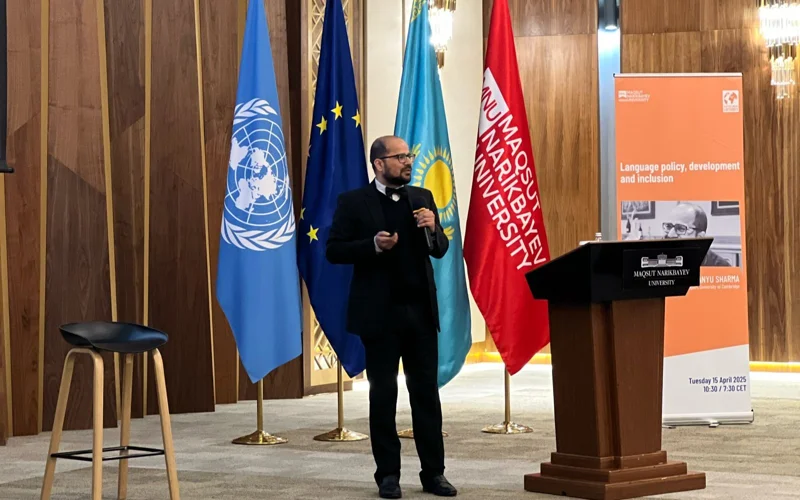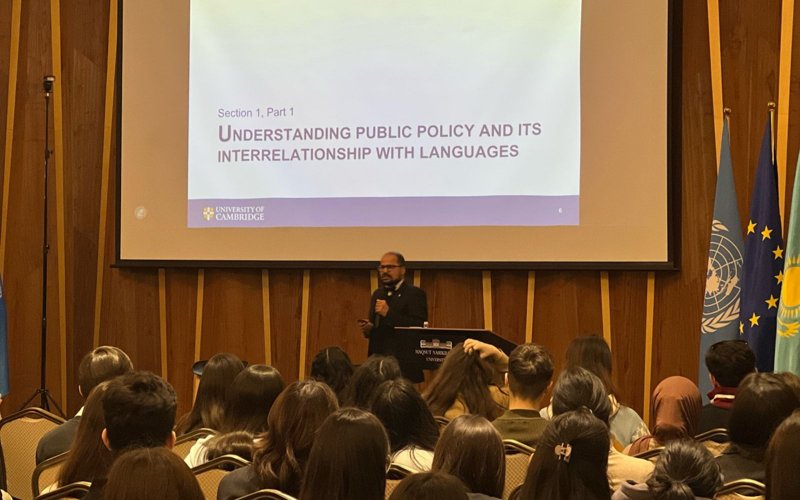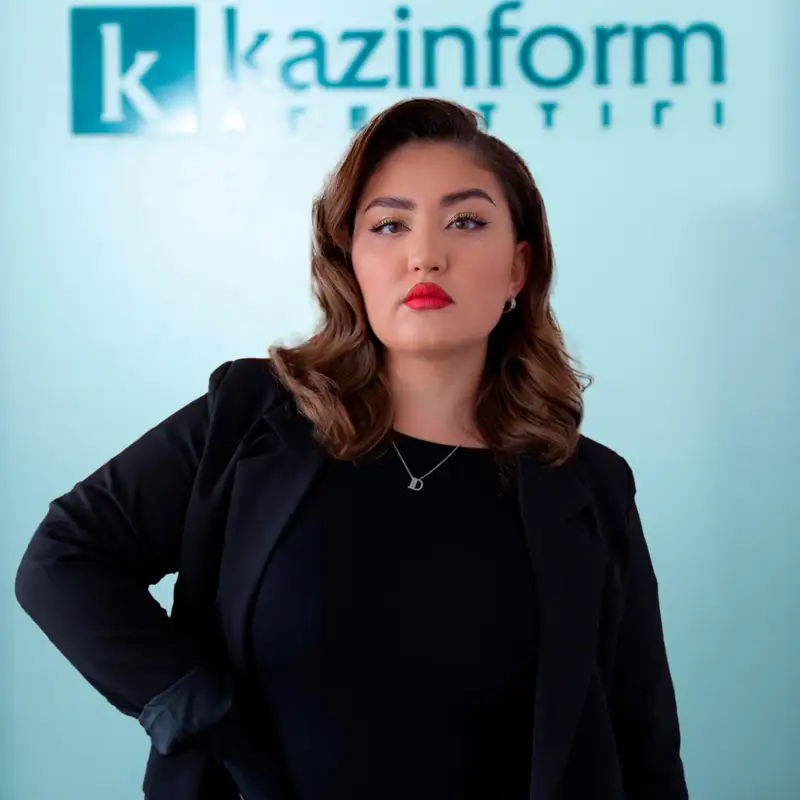Kapuscinski Lecture at MNU explores language inclusion and identity
Maqsut Narikbayev University hosted the first Kapuscinski Lecture, featuring Professor Abhimanyu Sharma’s talk on the role of language in shaping inclusive and sustainable societies. The lecture addressed the importance of inclusive language policy and its relevance to national development, reports a Kazinform News Agency correspondent.

Professor Sharma emphasized the underestimated role of language in shaping identity and governance, saying that "Languages are often perceived solely as instruments of communication. This simplistic view may be due to the fact that the impact of languages on everyday life is less obvious to policymakers, such as the activities of parties or social groups. However, it should be noted that language is not only a vehicle of communication, but also an important marker of identity. Since language is closely linked to how individuals understand and define their worth, it should occupy a central place in the system of public policy."
The focus of the lecture revolved around critical issues, such as the impact of English-language education and the systemic exclusion of deaf communities due to the lack of sign language instruction.
“The main challenge for policymakers is to devise policies that are more inclusive when dealing with communities and societies who do well to realize the risk involved in finding uniform solutions. The overall learning experience should be to create a language environment which meets the demands of social justice, bearing in mind the specific needs of minority councils,” Sharma explained, urging for a shift toward more equitable language environments.

Addressing the marginalization of poorly represented linguistic communities, Professor Sharma highlighted how neglect of deaf and hard-of-hearing (DHH) individuals undermines inclusive development.
“There's neglect (of the needs of DHH), which is evident in both academic and political discourse. There's also social neglect. You see neglect of deaf and hard of hearing in academic discourse,” he added.
Professor Sharma emphasized that an inclusive future begins with making marginalized voices heard: “How a disability is defined in the census has a bearing on the number of children or people with hearing disability, and this has a bearing on the policies that are made. See, if you are numerically strong enough to make an impact, to cause an impact on policies, maybe policy making will not take into account your needs, which is what happens.”
The Kapuscinski Lectures are named after the esteemed Polish journalist and writer Ryszard Kapuscinski. Supported by the UNDP and European Commission, the event brings together top global thinkers to discuss development and global challenges.
Michal Labenda, Charge d’Affaires of the Polish Embassy in Kazakhstan, reflected on the cultural significance of language and Kapuscinski’s legacy:
“Language is very important because this is a necessary tool for preserving our identity. It helped us survive during the years when we didn’t have our own state,” he said, adding that “Kapuscinski is a very important person for me because as Maciej said before, it was like a window for outside world and honestly speaking, he was the first one who gave me any impression about Kazakhstan and about the region as a whole because he wrote the book about the whole area of Central Asia in the 60s.”

